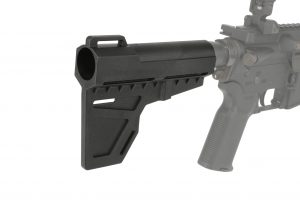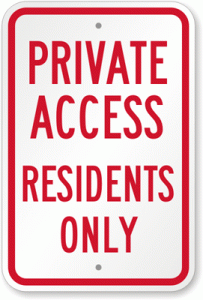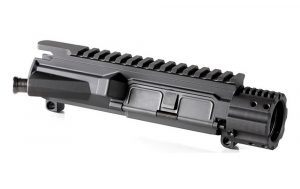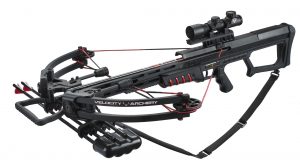 In the Fall of 2014, I wrote about a series of actions on the part of the ATF that lead me to believe that they were attempting to modify their interpretation of the stabilizing brace issue.
In the Fall of 2014, I wrote about a series of actions on the part of the ATF that lead me to believe that they were attempting to modify their interpretation of the stabilizing brace issue.
On January 16, 2015 the ATF issued an open letter in which they confirmed my fears. In that letter, they put forward the position that merely shouldering a pistol equipped with a stabilizing brace constituted a ‘redesign’ of the firearm resulting in an unregistered short-barreled rifle (SBR).
That left owners and manufacturers of stabilizing braces in a state of uncertainty. Thankfully, several players in the industry challenged the open letter. On January 5, 2017, the counsel for SB Tactical, LLC sent a letter to ATF Acting Director Thomas Brandon requesting reconsideration of the position taken in the January 16, 2015 open letter.
The ATF officially responded to this request on March 21, 2017 in a letter in which they claimed they were not reversing their previous position but in effect did just that. The entire letter is embedded below but the key elements from the letter are:
“With respect to stabilizing braces, ATF has concluded that attaching the brace to a handgun as a forearm brace does not ‘make’ a short-barreled firearm because … it is not intended to be and cannot comfortably be fired from the shoulder.”
“Therefore, an NFA firearm has not necessarily been made when the device is not re-configured for use as a shoulder stock — even if the attached firearm happens to be fired from the shoulder.”
“To the extent the January 2015 Open Letter implied or has been construed to hold that incidental, sporadic, or situational ‘use’ of an arm-brace (in its original approved configuration) equipped firearm from a firing position at or near the shoulder was sufficient to constitute a ‘redesign,’ such interpretations are incorrect and not consistent with ATF’s interpretation of the statute or the manner in which it has historically been enforced.”
They did go on to add that actions which would still constitute re-design include taking affirmative steps such as:
- Permanently affixing the brace to the end of a buffer tube at a length that would not allow its use as an arm brace;
- Removing the arm strap; or
- Otherwise undermining its ability to actually be used as an arm brace.
I encourage my clients to read the entire letter below so they understand the limits of what I hope is the ATF’s final position. But as of now, the stabilizing brace is once again a viable alternative for occasionally shouldering your AR pistol.


 In my last post I answered the question of
In my last post I answered the question of  I was recently asked whether an FFL is required to manufacture and sell AR-15 uppers.
I was recently asked whether an FFL is required to manufacture and sell AR-15 uppers. I have written before about the rampant confusion surrounding the issue of
I have written before about the rampant confusion surrounding the issue of 



